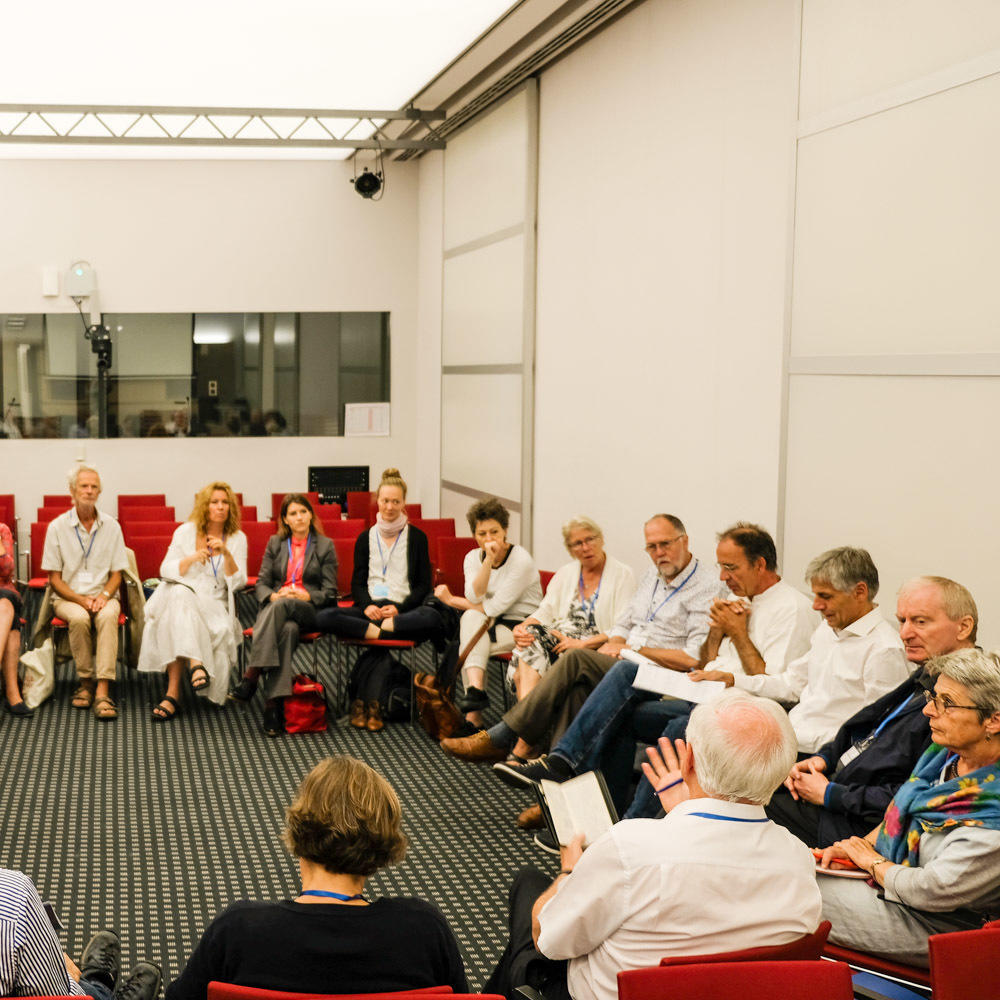An imagination of Europe
During the tenth Soul of Europe Conference, which was held from 23 to 25 August 2019 in the heart of Europe’s political capital, Brussels (BE), the attendants had the chance to visit the European institutions and breathe in the mood around the European quarter.
In this environment, and inspired by the conference contributions and conversations, one could come to a new understanding of the idea of Europe: Why do we expect so much of Europe? If one tries to grasp the idea of Europe one is immediately faced with contradictions: Europe is a continent, divided into east and west; and yet the idea of Europe cannot be delimited geographically because, while the borders in the West are clear, those in the east are not.
Contrasting images
Europe is home to many, but is the feeling of being homeless not part of humanity’s reality today? Could Europe consequently be seen as a home for the homeless? Over and above that many may expect Europe to emerge as a political and economic power within the global competition. But one can also sense that Europe’s identity is not (or no longer) determined by questions of power.
Our ideas about this continent are therefore contentious. Could this tension be a first aspect of its identity? Contrasts always imply the potential for a space emerging whose identity or substance is not born from these – controversial – universally-valid thoughts, but from unique and situation-related encounters. In this space neither abstract truths, nor efficiency or usefulness are important, but solely the encounter of free beings who together form a social substance. This space is fragile but urgently necessary. At the individual level people want to be understood and recognized as individuals and they want to support others. If this is not possible they might try to meet this need in other ways, by developing nationalist or extremist tendencies for instance.
A challenge
Controversies and tensions are on the rise everywhere in the world. Severe economic, political and military crises are threatening to tear the world apart. This serious situation cannot be resolved through power or ideologies but only through open spaces and encounters. Can Europe make a contribution to this? Many are looking to Europe with this question in mind.
Creating spaces for Europe to meet, from Yekaterinburg (where the Soul of Europe conference will take place in 2020, from 9 to 12 July) to Brussels must mean above all learning to take others seriously wherever they live and work – whether in anthroposophical or eu institutions – and to meet them as who they are. For in such an honest encounter they can both become freer, Europe can become more European and will be able to make a gentle but fundamental contribution to the whole world.
Jonas Lismont and Louis Defèche, both co-workers of the Goetheanum’s communications department, offered a workshop at the Soul of Europe conference in Brussels, entitled ‹What imaginations for Europe?›
Web: www.soulofeurope2019.eu
Web: www.soulofeurope.net

